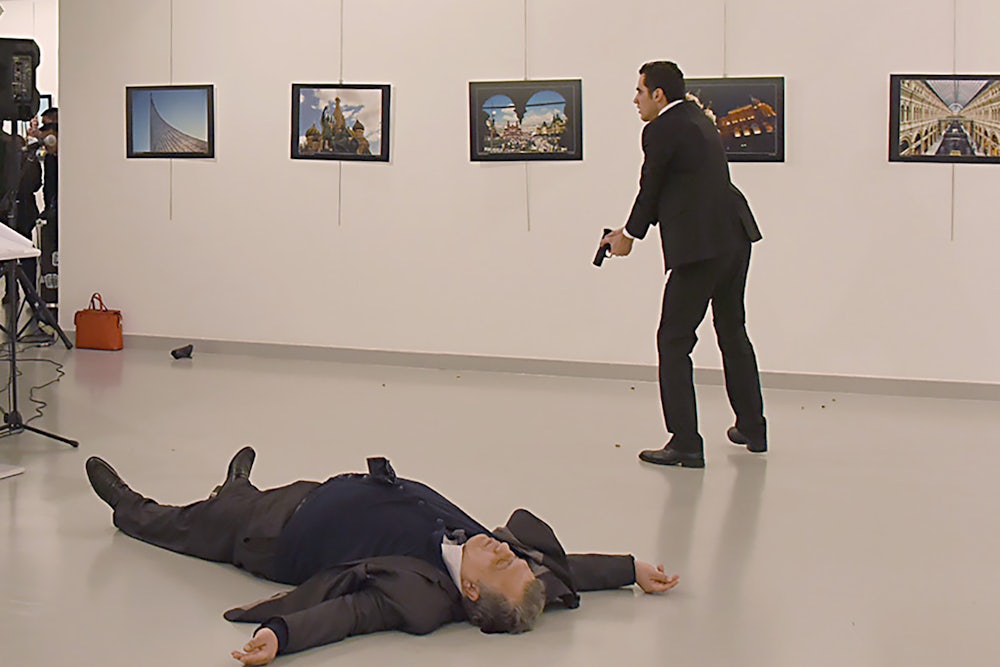On Monday, a gunman—reportedly a Turkish policeman—assassinated Russia’s ambassador to Turkey, Andrey Karlov, at an art gallery in Ankara. After shooting Karlov from behind, the gunman shouted, “Allahu Akhbar.” He then cited Russia’s involvement in Syria’s ongoing civil war, saying, “Don’t forget about Aleppo, don’t forget about Syria.” Russia’s bombing of civilian infrastructure in Aleppo, particularly hospitals, has been condemned by Secretary of State John Kerry and others, who have called for a war crimes investigation.
More information will emerge about the shooter and his motives, but it is suspected that one of his goals was to attempt to drive a wedge between Turkey and Russia, which have been edging closer together after a long period of suspicion (Turkey shot down a Russian jet in 2015, which caused tensions to spike between the two countries). Both are involved in the fighting in Syria: Russia is helping to prop up Bashar al-Assad’s regime, while Turkey’s involvement is much more complicated, to say the least. (The Turks were accused of supporting numerous jihadist groups, but now coordinates fighting ISIS with Russia. Turkey has also used the conflict as an excuse to persecute the Kurds.)
Officials in Turkey and Russia have both condemned the assassination and both have blamed the usual suspects: the Gulenists in Turkey (who allegedly attempted a coup this summer) and the West in Russia, respectively. At the least, both countries will use the assassination to continue crackdowns on dissent and justify existing policies.
